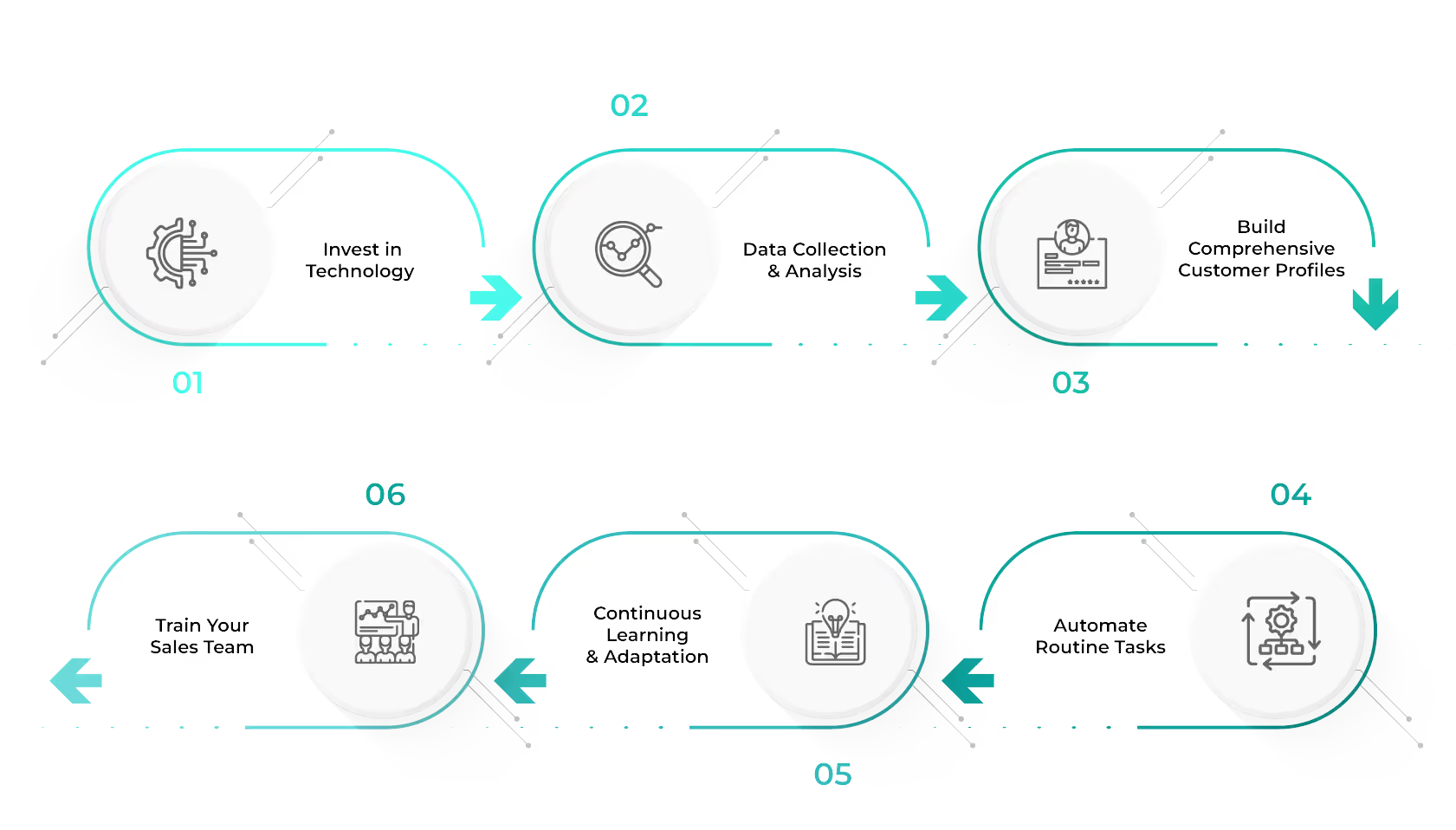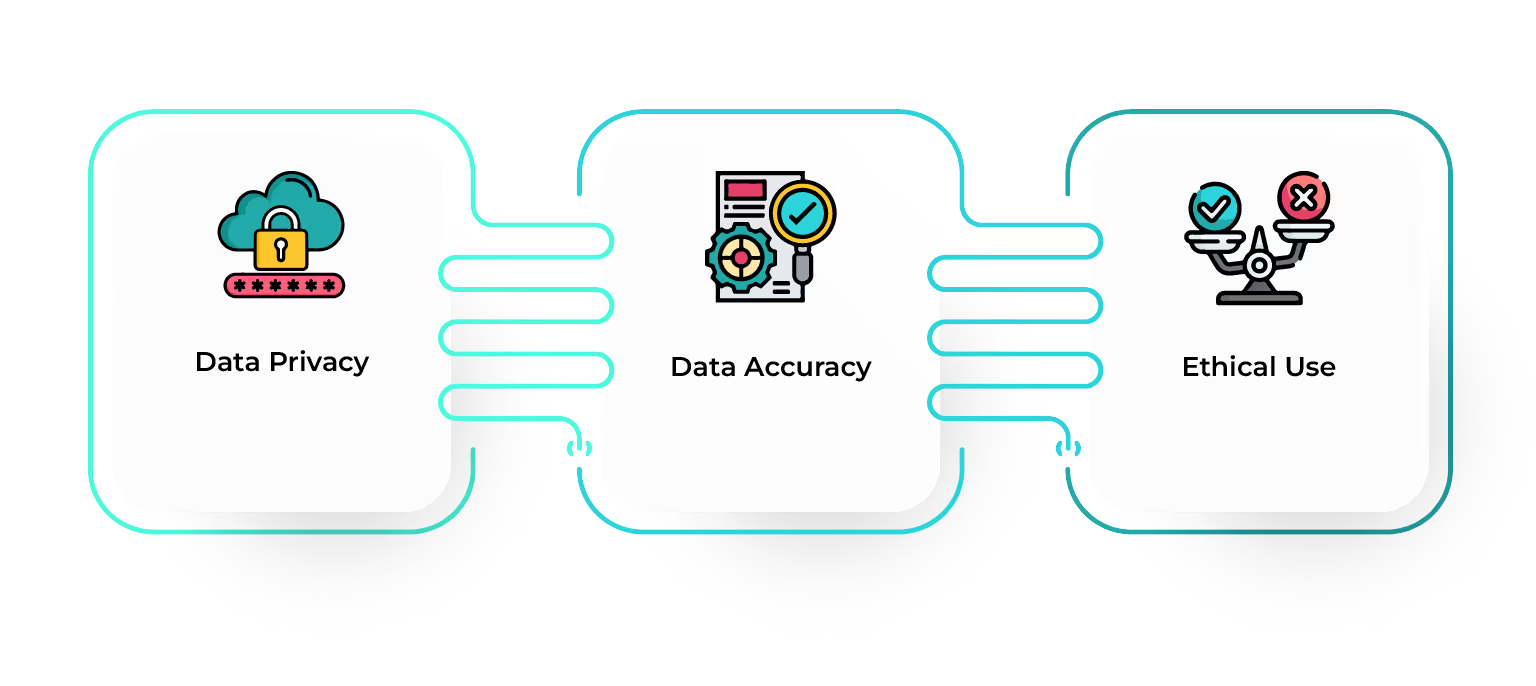
Blog
Unlocking the Power of Sales Intelligence: A Comprehensive Guide
October 10, 2023


Key Insights
In today's highly competitive business landscape, sales teams face more challenges than ever before.
They need to identify potential leads, understand customer needs, and close deals effectively.
To navigate this complex terrain, sales professionals are increasingly turning to a valuable resource known as sales intelligence.
This comprehensive guide will walk you through the concept of sales intelligence, its significance, and how to harness its power to boost your sales efforts.
What is Sales Intelligence?

Sales intelligence refers to the process of gathering, analyzing, and leveraging information about potential and existing customers to enhance sales strategies and outcomes.
It involves collecting data from various sources and turning it into actionable insights that can inform sales decisions. Sales intelligence enables sales professionals to understand their prospects better, identify opportunities, and tailor their approach to maximize success.
The goal of sales intelligence is to provide sales teams with actionable insights and data-driven strategies to:
- Identify and prioritize leads: Sales intelligence helps sales teams identify and target the most promising leads by providing information on their likelihood to convert into customers. This includes lead scoring and segmentation based on various criteria.
- Personalize sales interactions: By understanding the needs, preferences, and pain points of individual customers, sales teams can tailor their messaging and sales pitches to resonate with each prospect. Personalization can significantly improve conversion rates.
- Improve sales strategies: Sales intelligence provides valuable insights into market trends, competitor activities, and customer behavior. This information can be used to refine sales strategies, pricing models, and product offerings.
- Enhance customer relationships: The role of the sales team in harnessing intelligence data is crucial, as it empowers them to proactively address customer needs, enhance satisfaction, and ensure lasting relationships through personalized support and post-sales initiatives.

Sales intelligence relies on various data sources and tools, including customer relationship management (CRM) systems, marketing automation platforms, social media monitoring, web analytics, and external data providers. These sources help gather and centralize data for analysis, allowing sales teams, with a keen awareness of terms of sales, to make data-driven decisions and optimize their sales efforts.
Ultimately, sales intelligence aims to empower sales professionals with the information they need to make informed decisions, boost efficiency, and increase revenue by closing deals more effectively. It's an essential component of modern sales and marketing strategies in today's data-driven business environment.
The Significance of Sales Intelligence:

Sales intelligence is not just a buzzword; it's a crucial component of modern sales strategies. Here's why it's so significant:
1. Enhanced Lead Generation
Incorporating sales intelligence into the sales process is a key driver of sales transformation. By leveraging data-driven insights, sales teams can pivot from traditional, one-size-fits-all approaches to a more personalized and efficient sales strategy. This transformation not only enhances lead quality and conversion rates but also positions businesses to adapt to changing market dynamics and customer expectations, ultimately achieving sustained growth and competitiveness in today's rapidly evolving business landscape.
2. Better Customer Understanding
To sell effectively, you need to know your customers inside and out. Sales intelligence enables you to create detailed customer profiles, which can help tailor your sales pitch, anticipate objections, and build stronger relationships.
3. Competitive Advantage
In today's competitive market, staying ahead of the competition is vital. Sales intelligence can uncover your competitors' strengths and weaknesses, allowing you to position your product or service more effectively.
4. Improved Sales Messaging
By analyzing customer data, you can craft personalized and relevant sales messages. This increases the likelihood of capturing your prospect's attention and ultimately closing the deal.
5. Streamlined Sales Processes
Sales intelligence tools and platforms can automate many aspects of the sales process, saving time and resources. This enables sales teams to focus on high-value tasks, such as relationship-building and strategic planning.
How to Harness the Power of Sales Intelligence:

Now that you understand the importance of sales intelligence, let's explore how you can unlock its power:
1. Invest in Technology
There is a multitude of sales intelligence tools and software available in the market. These tools can help you gather and analyze customer data more efficiently. Invest in technology that aligns with your specific needs, whether it's lead generation, customer profiling, or competitive analysis.
2. Data Collection and Analysis
Collect data from various sources, including CRM systems, social media, industry reports, and customer feedback. Once you have the data, analyze it to identify patterns, trends, and insights. Look for key indicators that can inform your sales strategies.
3. Build Comprehensive Customer Profiles
Create detailed customer profiles that include demographic information, preferences, pain points, and buying behavior. The more you know about your customers, the better you can tailor your sales approach.
4. Automate Routine Tasks
Use sales intelligence tools to automate routine tasks, such as data entry and lead scoring. This frees up your sales team to focus on building relationships and closing deals.
5. Continuous Learning and Adaptation
The sales landscape is constantly evolving. Stay updated with industry trends, strategically incorporate sales positioning, and adjust your strategies accordingly. Sales intelligence should be an ongoing process of data collection and analysis.
6. Train Your Sales Team
To achieve optimal results, align your sales team structure with the utilization of sales intelligence tools, fostering a dynamic organization that adapts to data-driven insights and continuously refines its strategies.
Challenges and Ethical Considerations:

While sales intelligence offers numerous benefits, it also comes with challenges and ethical considerations. It's essential to address these issues to use sales intelligence responsibly:
1. Data Privacy
Respect customer data privacy laws and regulations, such as GDPR or CCPA. Ensure that you have the necessary permissions to collect and use customer data.
2. Data Accuracy
Sales intelligence is only as good as the data it relies on. Ensure that the data you collect is accurate and up-to-date to avoid making decisions based on faulty information.
3. Ethical Use
Avoid unethical practices, such as data scraping, spamming, or deceptive sales tactics. Building trust with your customers is essential for long-term success.
Conclusion:
Sales intelligence is a powerful tool that can significantly enhance your sales efforts!
By investing in technology, collecting and analyzing data, and building comprehensive customer profiles, you can stay ahead of the competition and deliver more personalized and effective sales pitches.
However, it's crucial to use sales intelligence ethically and responsibly to build trust and maintain strong customer relationships.
Our verdict? Unlocking the power of sales intelligence can definitely lead to increased sales, improved customer satisfaction, and sustainable business growth.
ReKennect : Stay ahead of the curve!
Subscribe to our bi-weekly newsletter packed with latest trends and insights on incentives.
Thank you! Your submission has been received!
Oops! Something went wrong while submitting the form.
Your data is in safe hands. Check out our Privacy policy for more info














